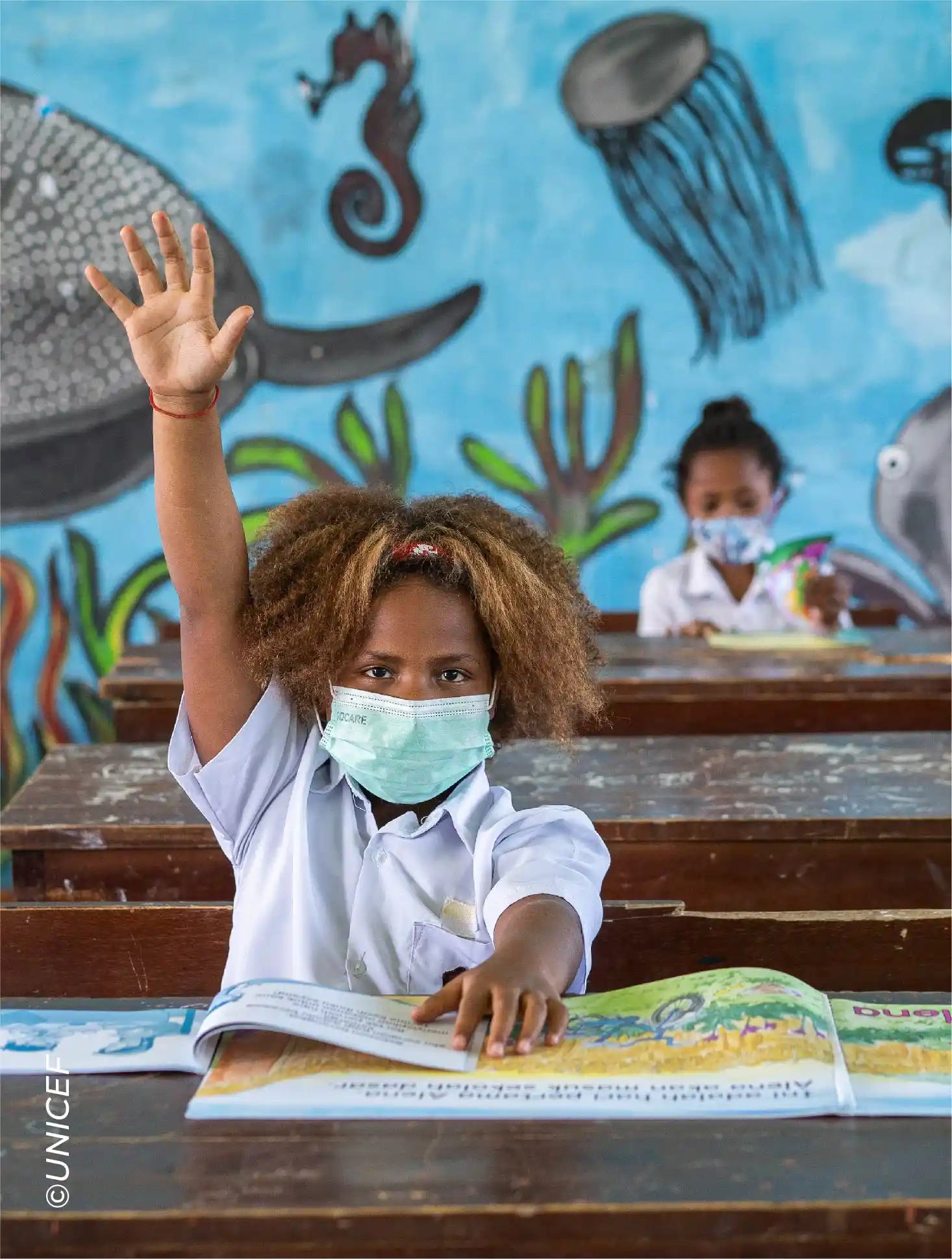United Nations In Indonesia
Country Results Report 2021
Education




 The COVID-19 pandemic caused the world’s largest-ever recorded disruption in education. In August 2021, UNICEF reported that some 80 million children and adolescents in Indonesia had been exposed to widespread secondary impacts on their learning, health, nutrition, and economic security over the preceding year.
The COVID-19 pandemic caused the world’s largest-ever recorded disruption in education. In August 2021, UNICEF reported that some 80 million children and adolescents in Indonesia had been exposed to widespread secondary impacts on their learning, health, nutrition, and economic security over the preceding year.
To mitigate the pandemic’s disruptive effect on children’s education, in 2021 the UN helped approximately 5.7 million students at over 37,000 schools to safely resume face-to-face learning in accordance with COVID-19 health protocols. Despite the Government’s best efforts, however, a safe return to in-class learning was not possible for much of the year. As such, the UN invested in improving the quality of distance learning, including by helping 8,300 teachers to undertake digital learning in life skills via the Ministry of Education, Culture, Research and Technology’s online teacher learning platform, Guru Belajar.
The UN also continued to support the scale-up of an early grade learning programme in Papua, a province in which students are more likely to be left behind in terms of educational attainment. In 2021, three new districts in Papua prioritised budget allocation for early grade learning interventions in target schools, an encouraging early indicator of success for the programme.
To support out-of-school children’s access to effective and inclusive learning environments, the UN worked with local governments to expand a program on child-centred planning and budgeting for out of school children across 15 districts. Some 1,283 district and village government officials contributed to the programme, which enabled 400 out-of-school children and 1,496 children at risk of dropping out of school to continue learning. The also UN continued to support out-of-school comprehensive sexuality education through virtual interventions like a communications campaign managed by partner NGO Yayasan Kasih Suwitno that reached 17,000 people. The UN worked with the Ministry of Health to develop a specialised module for health care providers on delivering adolescent reproductive health education to out-of-school students that was shared with 2,300 health providers. In parallel, the UN facilitated the signing of an MoU between the Ministry of Health and the Ministry of Education, which outlines the structure of a three-year joint Adolescent Reproductive Health Education programme.
Indonesia is not a signatory to the United Nations convention of refugees, so Indonesia is not obliged to provide public services for refugees. However, thanks to the UN’s sustained engagement with the government, refugee children and teenagers are now increasingly able to attend Indonesian schools, with 152 students, or some 36% of refugee children and teenagers living independently in Medan Makassar, Kupang, Tegal, Jakarta, and surrounding areas formally enrolled in schools as of 2021. UN agencies are also working with the government to address education-related gaps for refugees, such as the lack of formal certification upon completion of studies, and on strengthening legal provisions for refugee inclusion in education through the UNHCR-UNICEF Blueprint Pact for Joint Action for Refugee Children.
During the pandemic, the UN helped refugee children study online through the provision of internet data packages and loans of electronic devices like smartphones and tablets for 29 refugee students and 17 refugee-led organisations in and around Jakarta. The UN implemented flexible policies to respond to areas of acute need, for example replacing transportation allowances with meal allowances. In addition, the UN helped sustain community learning centres’ ability to host educational activities for home-schooled refugee children, as well as for adults in the areas of computer literacy, language classes and vocational training.